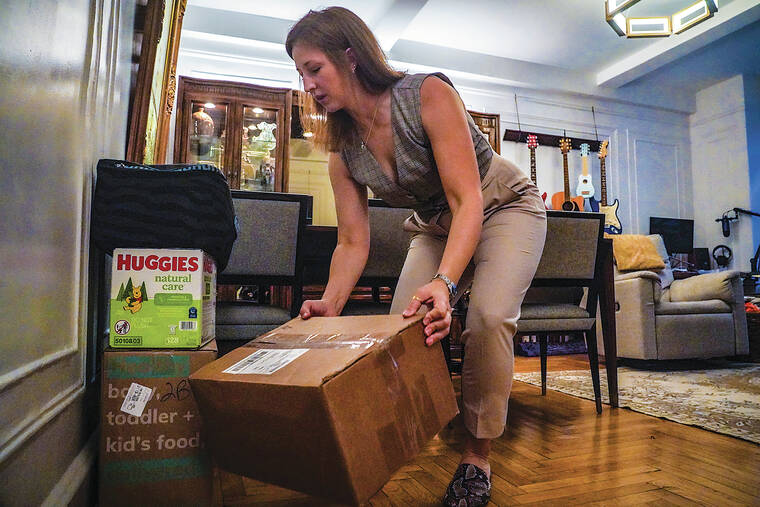UPS strike looms in a world grown reliant on everything delivered everywhere all the time
WASHINGTON — Living in New York City, working full time and without a car, Jessica Ray and her husband have come to rely on deliveries of food and just about everything else for their home. It has meant more free time on weekends with their young son, rather than standing in line for toilet paper or dragging heavy bags of dog food back to their apartment.
There are millions of families like the Rays who have swapped store visits for doorstep deliveries in recent years, meaning that contentious labor negotiations now underway at UPS could become vastly more disruptive than the last time it happened in 1997, when a scrappy upstart called Amazon.com became a public company.
UPS delivers millions more packages every day than it did just five years ago and its 350,000 unionized workers, represented by the Teamsters, still seethe about a contract they feel was forced on them in 2018.
In an environment of energized labor movements and lingering resentment among UPS workers, the Teamsters are expected to dig in, with the potential to cow a major logistical force in the U.S.
The 24 million packages UPS ships on an average day amounts to about a quarter of all U.S. parcel volume, according to the global shipping and logistics firm Pitney Bowes, or as UPS puts it, the equivalent of about 6% of nation’s gross domestic product.
Higher prices and long wait times are all but certain if there is an impasse.
“Something’s got to give,” said Thomas Goldsby, logistics chairman in the Supply Chain Management Department at the University of Tennessee. “The python can’t swallow the alligator, and that’s going to be felt by all of us.”
In other words, brace yourself for Supply Chain Breakdown: The Sequel.
In the second half of 2021, the phrase “global supply chain” began to enter casual conversations as the world emerged from the COVID-19 pandemic. Businesses struggled to get what they needed, raising prices and wait times. Automakers held vehicles just off the assembly line because they didn’t have all the parts.
Some of those problems still linger and a strike at UPS threatens to extend the suffering.
Those who have come to rely on doorstep deliveries for the basic may have to rethink weekly schedules.


